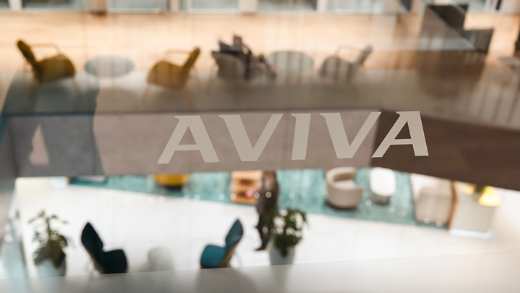Aviva research finds just 3% of nuisance calls have legally-required customer consent.
- Aviva calls for solicitors to declare the source of claims leads
- Consumers blitzed with one BILLION insurance-related nuisance calls
- 80% of consumers support a ban on all nuisance calls
Cold callers who bombard UK consumers with billions of nuisance calls every year only have the necessary consent for 3% of the calls they make - a clear violation of laws designed to protect consumers from unwanted calls, analysis of Ofcom data by Aviva shows*.
Aviva’s research found that consumers were targeted with 996 million nuisance calls and texts relating specifically to an injury-related claim (such as whiplash, holiday sickness, etc.), pension, PPI or other financial service-related claims, which translates to 2,728,767 calls and texts per day, or 1,895 made every minute. These calls account for nearly one in four (23.2%) of all cold calls in the UK.
of Brits said they had received a nuisance call or text in the last seven days, consumer research by Aviva** has found.
of those who had received a cold call or text, said that they are contacted on a daily basis.
The number of calls and low levels of consumer consent shows there is still a long way to go to properly protect consumers. While important rules designed to protect consumers have recently been brought in – such as the Financial Guidance and Claims Act 2018, which stipulates firms require consent from the person they are calling – there is still a clear need to monitor and enforce compliance with these rules to improve consumer protection.
The referral fee ban isn’t working
The barrage of nuisance calls chasing compensation claims for whiplash, etc. are mostly made by claims management companies (CMCs) acting as lead generators. These lead generators are paid to ‘introduce’ clients to solicitors – effectively circumventing the Legal Aid, Sentencing and Punishment of Offenders Act 2012 (LASPO) which banned payment of referral fees in connection with personal injury claims.
Your data for sale
The lucrative nature of selling claims leads has given rise to a black market for car accident data. However, current regulation does not require solicitors to divulge the source of their claims leads, which distances the bad behaviour of the lead generators away from solicitors and into organisations which make every effort to remain anonymous.
The Ministry of Justice Claims Portal – through which solicitors must file minor injury claims for compensation - illustrates the issue: when asked to declare the source of their claims lead when submitting a claim, solicitors are given the option of ‘prefer not to say’. This defeats the object and raises the question as to why claimant solicitors want to hide who referred the claim.
The Solution: Regulation Required
Solicitors should not be using leads which have been obtained without proper consent. To discourage this, Aviva believes that solicitors should declare the means by which the client was obtained, and through which business the client was referred. This simple action would improve standards in this murky area and help to clean up the bad behaviour often associated with the acquisition of claims leads and, ultimately, lead to a sharp drop in the number of nuisance calls.
This move could be made part of the Ministry of Justice Road Traffic Accident Portal. Monitoring and compliance should be overseen by the Solicitors Regulation Authority, who should work in conjunction with the FCA, the regulator for the claims management sector.
Consumer Advice
With so many Brits receiving nuisance calls and texts, here’s how to avoid falling prey to cold callers:
- Hang up: if you’ve been targeted out of the blue by a company you’re not familiar with, hang up.
- Avoid third parties - claim directly via your insurer: 95% of injury claims are reported to Aviva via an agent, such as a lawyer or CMC. The FCA has clearly said that CMCs must "prominently state if a claim can be made to a statutory ombudsman / compensation scheme without using a CMC and without incurring a fee”. The ‘compensation scheme’ referred to could be an insurer. Aviva strongly recommends all claimants should report every claim directly to their insurer.
- Report it: report nuisance calls and spam texts to the ICO who will use the information to investigate and take action against those responsible. The ICO have the power to fine companies up to £500,000 that break the rules on unsolicited texts and nuisance phone calls.
Andrew Morrish, Claims Director, Aviva UK General Insurance, said: “Enough is enough. We’re all fed up with the number of nuisance calls and texts we receive. It is frankly shocking that the claims sector can blatantly and consistently break the law by not securing the necessary consumer consent before contacting them about an injury claim or other issue. CMCs and so-called lead generators are making a mockery of the current regulation and legislation designed to protect consumers. It’s not surprising that four out of five (80%) consumers told us they would like a ban on cold calling – full stop.
“Aviva has been at the forefront of fighting the menace of nuisance callers to help protect our customers, so we have first-hand knowledge of the broken system that incentivises bad – and often illegal – behaviour in pursuit of claims leads.
“Transparency and trust must be at the heart of the claims process, and this starts at the very beginning. Our proposal of one simple action – that solicitors declare the introducer of their claims lead – would prevent them from either knowingly or unknowingly using leads which have been obtained without consent. This would improve confidence in the claims process and help restore some much-needed credibility to the injury claims arena. It’s high time we hung up on nuisance callers for good."
- ENDS -
References:
* Source: Oxera, based on data from Ofcom and the Information Commissioner’s Office (ICO).
** Source: Censuswide survey of 2,000 adults in September 2019
Additional highlights from Aviva’s consumer research**:
Most Brits are fed up with nuisance calls:
· 80% support a Government ban on cold calling.
· Only 8% think the companies making the call are trying to help them, while 78% would not consider using any service offered via a nuisance call or text.
· 90% of consumers would block all nuisance calls or texts if they could.
· 85% think those behind the nuisance calls should receive tougher penalties
Case Study
Claims management companies adopt persistent, persuasive tactics in order bring an injury claim from a consumer. Some people who have received a barrage of nuisance calls have even admitted to submitting a bogus claim simply to stop the CMC that was harassing them from contacting them.
One example of a CMC’s aggressive sales technique comes from a customer under Aviva’s General Accident brand. The customer was contacted by the ‘General Accident Aftercare team’ – however, there is no ‘General Accident Aftercare team’ operated by Aviva or any of its companies. This is a lie to make the customer believe they are dealing directly with their insurer. The customer complained that they are “receiving calls from the ‘General Accident Aftercare team’ requesting information about my claim. They have been ringing me constantly since my accident and are getting angry as I am not providing any information. They’ve said it’s a legal requirement they call me.”
This highlights the extent to which some CMCs will go in order to manage a claim. Such aggressive tactics leave consumers feeling “annoyed” (50%), “intimidated” (18%) and “distressed” (14%) by these calls**.
Media Enquiries:
Erik Nelson
Motor Insurance and Compensation Culture, Fraud and Data
-
Phone
-
+44 (0) 7989 427086
-
-
Email
Notes to editors:
- We are the UK's leading diversified insurer and we operate in the UK, Ireland and Canada. We also have international investments in India and China.
- We help our 20.5 million (as at 31 December 2024) customers make the most out of life, plan for the future, and have the confidence that if things go wrong we'll be there to put it right.
- We have been taking care of people for more than 325 years, in line with our purpose of being 'with you today, for a better tomorrow'. In 2024, we paid £29.3 billion in claims and benefits to our customers.
- In 2021, we announced our ambition to become Net Zero by 2040, the first major insurance company in the world to do so. While we are working towards our sustainability ambitions, we recognise that while we have control over Aviva's operations and influence over our supply chain, when it comes to decarbonising the economy in which we operate and invest, Aviva is one part of a far larger global system. Nevertheless, we remain focused on the task and are committed to playing our part in the collective effort to enable the global transition. Find out more about our climate goals at www.aviva.com/sustainability/climate and our sustainability ambition and action at www.aviva.com/sustainability.
- Aviva is a Living Wage, Living Pension and Living Hours employer and provides market-leading benefits for our people, including flexible working, paid carers leave and equal parental leave. Find out more at https://www.aviva.com/about-us/our-people/
- As at 31 December 2024, total Group assets under management at Aviva Group were £407 billion and our estimated Solvency II shareholder capital surplus as at 31 December 2024 was £7.9 billion. Our shares are listed on the London Stock Exchange and we are a member of the FTSE 100 index.
- For more details on what we do, our business and how we help our customers, visit www.aviva.com/about-us
- The Aviva newsroom at www.aviva.com/newsroom includes links to our spokespeople images, podcasts, research reports and our news release archive. Sign up to get the latest news from Aviva by email.
- You can follow us on:
- X: www.x.com/avivaplc
- LinkedIn: www.linkedin.com/company/aviva-plc
- Instagram: www.instagram.com/avivaplc
- For the latest corporate films from around our business, subscribe to our YouTube channel: www.youtube.com/user/aviva
















